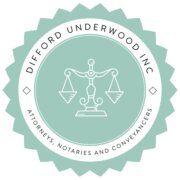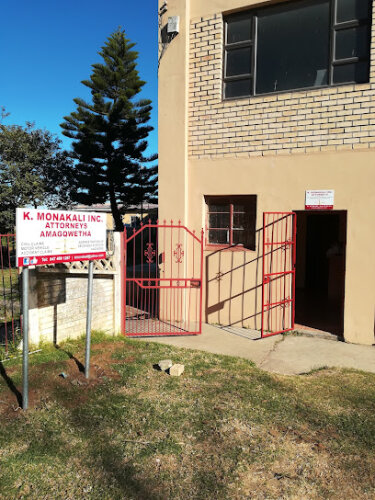Best Brokerage Lawyers in East London
Share your needs with us, get contacted by law firms.
Free. Takes 2 min.
Free Guide to Hiring a Real Estate Lawyer
List of the best lawyers in East London, South Africa
About Brokerage Law in East London, South Africa
Brokerage in East London, South Africa, typically refers to the business of arranging transactions between buyers and sellers for a commission when the deal is executed. This can encompass a wide range of sectors, including real estate, insurance, financial products, and shipping. East London, as a dynamic commercial centre in the Eastern Cape, is home to both large brokerage firms and independent brokers. Brokerage law in this region governs the relationships between brokers, their clients, and third parties, ensuring fairness, transparency, and legal compliance throughout all transactions.
Why You May Need a Lawyer
There are numerous situations in which individuals and businesses may require legal assistance related to brokerage in East London:
- Navigating brokerage agreements (especially for real estate, insurance, or financial services).
- Resolving disputes over commissions or fees.
- Dealing with claims of misrepresentation or breach of duty by a broker.
- Ensuring compliance with local regulations and licensing requirements.
- Protecting consumer rights during property or asset transactions.
- Drafting and reviewing broker-client contracts.
- Understanding liabilities related to brokerage activities.
- Handling disciplinary proceedings or legal actions against brokers.
- Assisting with due diligence processes in complex transactions.
- Providing guidance on ethical obligations and fiduciary duties.
Local Laws Overview
Brokerage services in East London are subject to both national and local laws. Key legal frameworks include the Estate Agency Affairs Act 112 of 1976 (for real estate brokers), the Financial Advisory and Intermediary Services (FAIS) Act 37 of 2002 (for financial and insurance brokers), and consumer protection laws such as the Consumer Protection Act 68 of 2008. Regulations require brokers to be registered, abide by certain professional standards, disclose fees, and avoid conflicts of interest. Local Eastern Cape regulations may also impact zoning, business licensing, and municipal levies, especially in property transactions. Contracts must be in writing in many cases, and both the client and broker have legal protections and obligations.
Frequently Asked Questions
What is a broker and what do they do in East London?
A broker is an individual or business that arranges transactions between buyers and sellers and earns a commission when the deal is finalized. In East London, brokers operate in sectors such as property, insurance, finance, and shipping.
Do brokers in East London require a licence?
Yes. Real estate brokers must be registered with the Estate Agency Affairs Board, while financial and insurance brokers must comply with the FAIS Act and register with the Financial Sector Conduct Authority.
How are brokerage fees regulated in East London?
Brokerage fees are generally negotiable but must be transparently disclosed in contracts. Certain industries may have standard commission rates. Hidden fees or excessive charges are prohibited by law.
What rights do clients have in brokerage transactions?
Clients have the right to full disclosure, fairness, and professional service from brokers. They can seek legal recourse against brokers for fraud, misrepresentation, or breach of contract.
What is the legal obligation of a broker to their client?
Brokers owe a duty of care, must act in the best interests of their clients, disclose conflicts of interest, and comply with all relevant laws and professional codes.
What can I do if a broker mismanaged my transaction or funds?
You may lodge a complaint with the relevant regulatory body, such as the Estate Agency Affairs Board or Financial Sector Conduct Authority. Legal action for damages or recovery of funds may also be taken.
Is it necessary to have a written contract with a broker?
While verbal agreements may be binding in some situations, written contracts are highly recommended for clarity and legal protection. Some transactions, like property sales, require written agreements by law.
What legal protections exist against fraudulent brokers?
There are strict penalties for fraud, and regulatory bodies enforce licensing and professional conduct. Agencies like the Estate Agency Affairs Board and the FSCA investigate complaints and can revoke licenses.
Can a broker represent both parties in a transaction?
In some cases, yes, but the broker must disclose this dual agency and obtain consent from both parties. Failing to disclose may result in disciplinary action and legal consequences.
How can a lawyer assist me in dealing with brokerage matters?
A lawyer can interpret contracts, provide advice on rights and obligations, negotiate on your behalf, represent you in disputes, and ensure all legal requirements are met throughout the transaction.
Additional Resources
For more information or assistance, consider reaching out to the following resources and authorities:
- Estate Agency Affairs Board (EAAB): Regulates real estate agents and agencies.
- Financial Sector Conduct Authority (FSCA): Regulates insurance and financial brokers.
- South African Property Owners Association (SAPOA): Industry association for property matters.
- Consumer Protection Office - Eastern Cape: For complaints and guidance regarding consumer rights.
- Law Society of South Africa: Provides referrals to qualified attorneys experienced in brokerage law.
- East London Chamber of Commerce: Guidance on business compliance for brokers.
Next Steps
If you find yourself in need of legal assistance regarding brokerage in East London, consider taking the following steps:
- Gather all documents relevant to your brokerage transaction or dispute, such as contracts, correspondence, and receipts.
- Clearly identify the issue or question you need help with, to streamline communication with a legal advisor.
- Contact a local attorney specializing in brokerage, real estate, or financial law. You can seek referrals from the Law Society of South Africa or trusted local sources.
- If your issue involves a regulated broker, lodge a complaint with the relevant regulator (EAAB or FSCA) while seeking legal advice.
- Make note of any deadlines or time limits for legal claims or regulatory complaints.
- During your consultation, ask your lawyer about your rights, responsibilities, and possible outcomes.
Seeking legal advice early can help prevent costly disputes and ensure your interests are protected throughout any brokerage transaction. If in doubt, always consult a qualified professional.
Lawzana helps you find the best lawyers and law firms in East London through a curated and pre-screened list of qualified legal professionals. Our platform offers rankings and detailed profiles of attorneys and law firms, allowing you to compare based on practice areas, including Brokerage, experience, and client feedback.
Each profile includes a description of the firm's areas of practice, client reviews, team members and partners, year of establishment, spoken languages, office locations, contact information, social media presence, and any published articles or resources. Most firms on our platform speak English and are experienced in both local and international legal matters.
Get a quote from top-rated law firms in East London, South Africa — quickly, securely, and without unnecessary hassle.
Disclaimer:
The information provided on this page is for general informational purposes only and does not constitute legal advice. While we strive to ensure the accuracy and relevance of the content, legal information may change over time, and interpretations of the law can vary. You should always consult with a qualified legal professional for advice specific to your situation.
We disclaim all liability for actions taken or not taken based on the content of this page. If you believe any information is incorrect or outdated, please contact us, and we will review and update it where appropriate.











